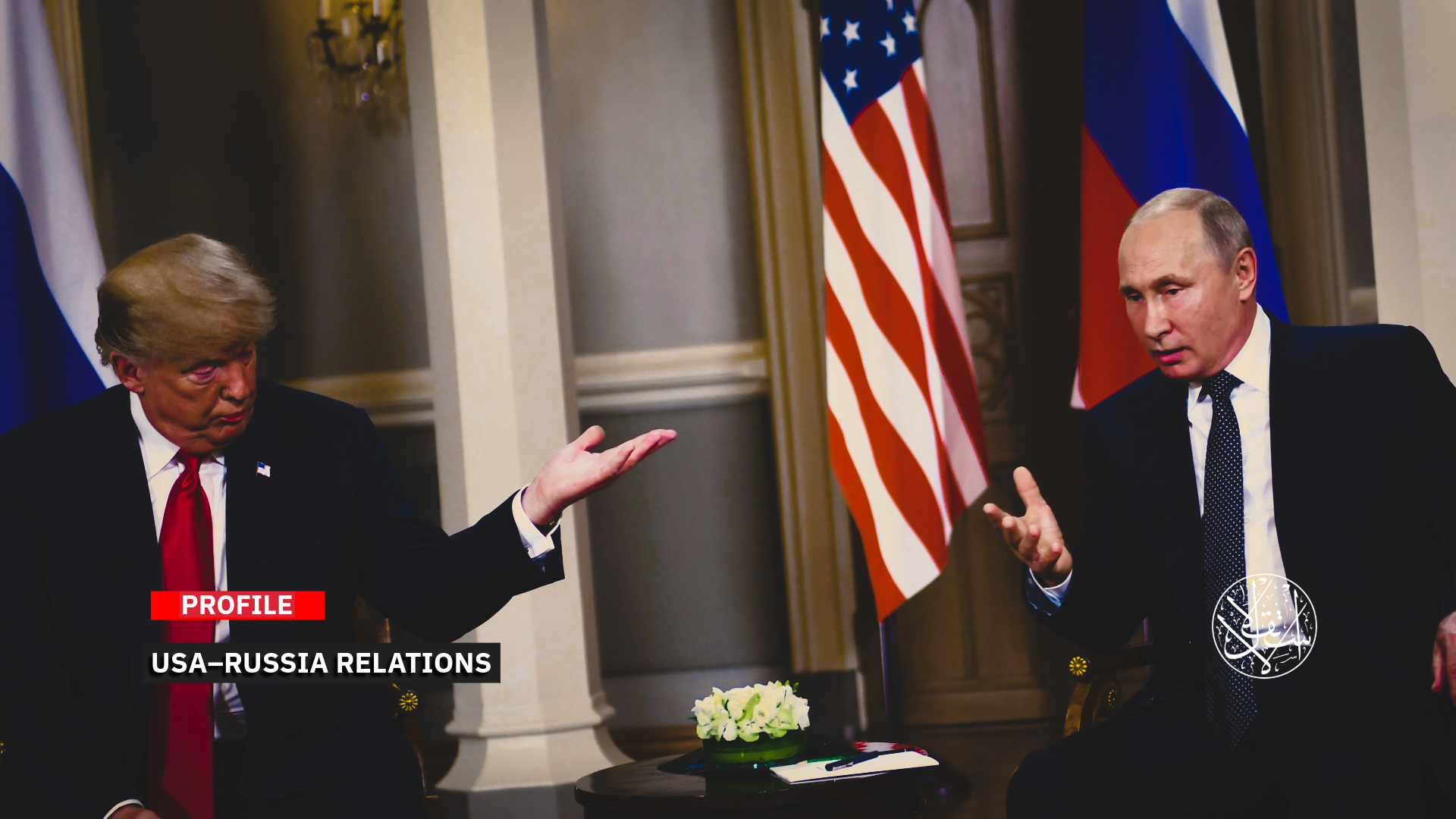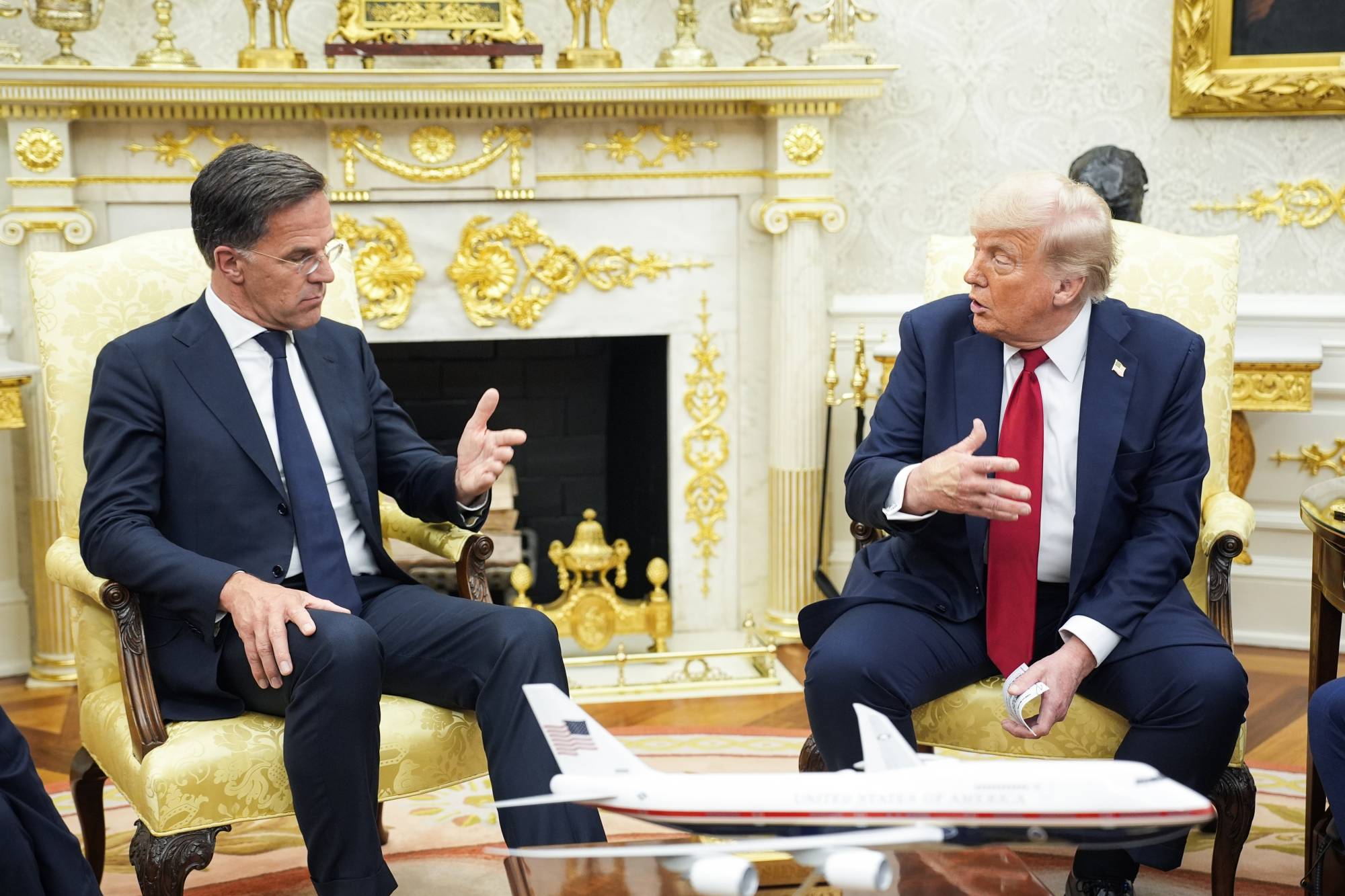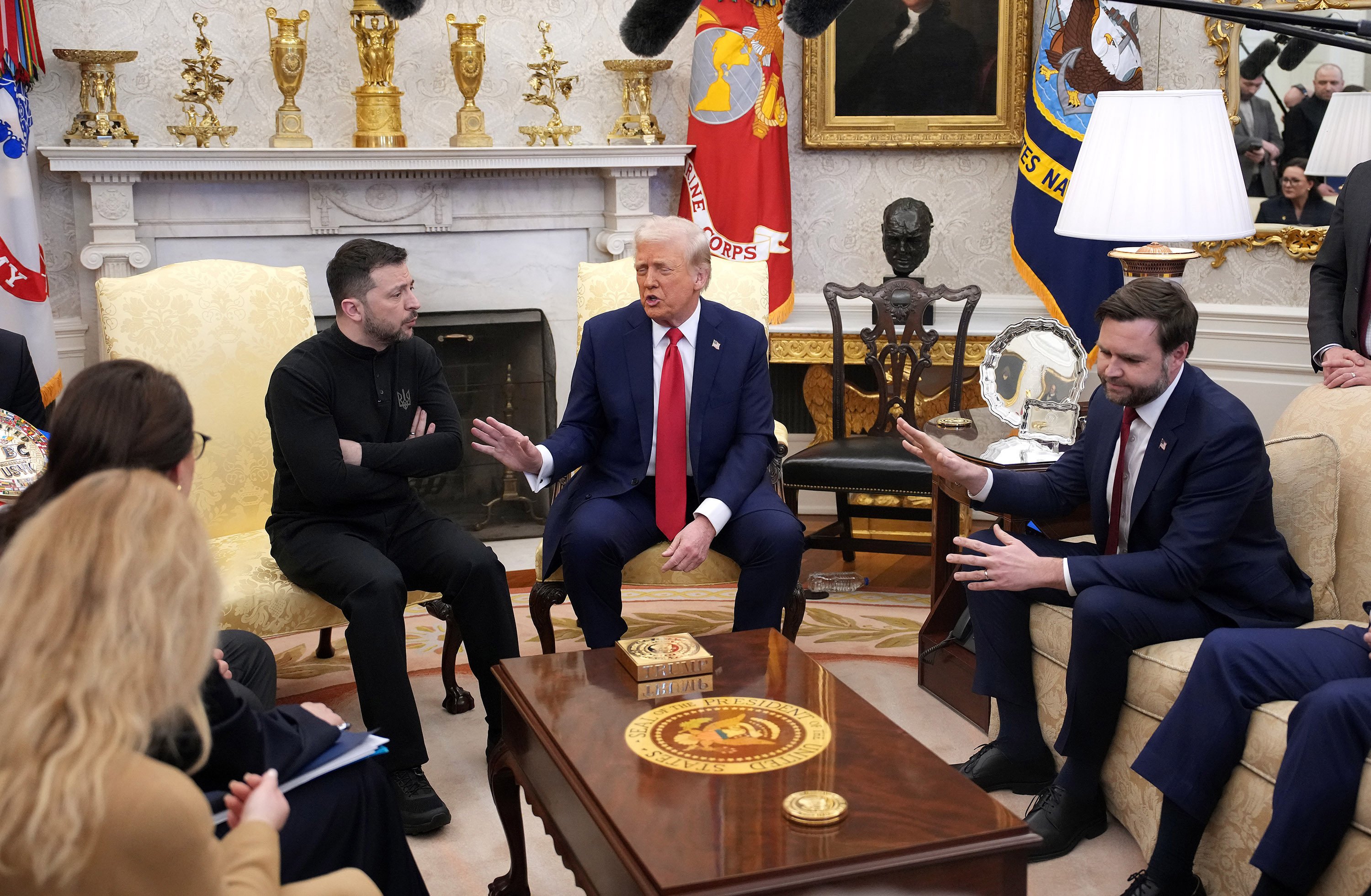Radical Shift: Why Trump Is Adopting a More Hostile Policy Toward Russia

“Trump’s latest initiative gives Moscow a 50-day deadline to end its war in Ukraine.”
Since returning to the White House last January, US President Donald Trump has worked to reconnect with Russian President Vladimir Putin and negotiate directly with him to end his invasion of Ukraine, which began in February 2022.
Just two weeks after Washington announced the suspension of some arms shipments to Kyiv, Trump reiterated last week, saying: “Ukraine would be rearmed.”
Despite his recent apparent courtesies, questions remain about Trump's seriousness in changing his approach to Putin, or whether this is merely a political maneuver and a tactical shift to support US arms manufacturers.
On the other hand, analysts believe that the new US approach to Russia reveals Trump's failure to fulfill his promise to end the Ukraine war and creates fertile ground for an escalation of military and economic conflict between the White House and the Kremlin.
These developments come amid the stalled negotiation process between Moscow and Kyiv for months, with the war now entering its fourth year with no clear end in sight, despite increasing international pressure to resume political dialogue.
US Threats
With US President Donald Trump failing to fulfill his promise to end the war in Ukraine within 24 hours, the US administration has chosen a new course in dealing with the Russian issue.
While his stance toward Putin was more lenient in the first months of his second term, accompanied by criticism of Ukrainian President Volodymyr Zelensky, he has recently changed his tone and begun imposing political, military, and economic pressure on Russia.
During his meeting with NATO Secretary General Mark Rutte, Trump announced a plan to rearm Ukraine with ammunition and weapons, including Patriot anti-missile systems, in its battle to repel the Russian invasion.
He noted that the cost of these military supplies, estimated at billions of dollars, would be borne by Europe.
He also warned that if an agreement to end the war is not reached within 50 days, the United States will impose 100% tariffs on Russian goods, as well as sanctions on countries that purchase Russian oil, such as China and India.
He told reporters at the White House, “I'm very disappointed in Putin. I thought we'd have a deal two months ago.”
Trump, in turn, rejected criticism of this timeline, saying: “I don't think 50 days is very long.”
In an earlier interview with BBC, Trump answered a question about his trust in Putin: “I don't trust almost anybody.”
The Financial Times reported that Trump had encouraged Ukraine in secret talks to intensify its strikes deep inside Russia.
A comparison of Trump's past and current statements reveals a stark contrast.
He previously said he still hoped to reach a deal with Putin, asserting that the Russian leader is a strong man, not a killer.
Now, Trump has repeatedly accused Putin of deceiving the West and previous US presidents, citing his frustration with Russia's continued escalation against Ukraine.
Despite repeated communications between Trump and Putin since Trump returned to the White House last January, which amounted to six phone calls, the two sides have not succeeded in reaching any understanding regarding a ceasefire.
Russian sources indicated that Putin values his relationship with Trump, but that he places his country's interests above all else, noting that the US president does not have much influence over the Russian president despite his recent threats.

Tactical Change
CNN described Trump's recent statements as a turning point in his rhetoric, which for years has praised Putin for his intelligence and strong leadership.
It indicated that this shift could open new horizons for Ukraine and Putin's opponents in the US Congress, as well as for European allies wary of the war.
It noted that Putin showed little response to Trump's previous attempts to stop the war, despite what she described as the very generous terms the US president offered for a peace deal.
It believed that Trump, known for his penchant for making grand bargains, may have been late in realizing that Putin had no intention of backing down, but rather considered this war an existential issue for his political survival.
However, it noted that Trump's position remains ambiguous, as he had previously expressed a desire to improve relations with Russia.
CNN concluded its report by warning that the deteriorating relationship between Trump and Putin could lead to a mutual escalation, especially in light of the nuclear tensions surrounding the war.
Reports also highlighted that Trump has consistently used similar phrases to postpone actions or demonstrate a short-term, firm stance, without concrete implementation.
Analysts believe that Trump's actions are not a strategic shift, but rather a tactical change that reflects the interests of the American arms industry, and could be temporary.
On his part, Konstantin Kosachev, deputy speaker of Russia's Federation Council, noted that Trump's statement on the Ukraine conflict would have no effect on sentiment in Russia.
He added that the Europeans had walked into a trap set by Washington — now positioned to buy US-made weapons systems for Ukraine from Trump, while only the US military-industrial complex will benefit.
Russian Plan
Initial Russian reactions to Trump's recent statements ranged from pausing to study and analyze them to affirming their adherence to their positions and vision for advancing a political settlement in Ukraine.
The Russian presidency announced that it needed time to evaluate Trump's deadline to end the war in Ukraine, describing it as very dangerous, while it expressed readiness to resume direct talks with Kyiv.
Kremlin spokesman Dmitry Peskov indicated that Russia was awaiting proposals from the Ukrainian side regarding the timing of the third round of direct talks, but hinted that the positions of Washington and its allies could hinder these efforts.
He warned that Ukraine viewed the decisions of the United States and NATO as a signal to continue the war, not to advance peace, noting that Europe wanted a military escalation.
On the other hand, Ukraine considered holding a new round of negotiations with the current Russian delegation pointless, as it lacked the authority to make concessions.
In a related development, Russian politicians downplayed the significance of US announcements regarding the war in Ukraine.
Deputy Foreign Minister Alexander Grushko said that NATO's arms deliveries to Ukraine showed that the alliance was interested in continuing the fighting.
Foreign Minister Sergey Lavrov noted that Moscow wants to understand the reasons behind Trump's statements, saying: “We know that Trump is under tremendous pressure from the European Union and NATO.”
He stressed that his country will not back down from its positions following the US ultimatum, explaining that Russia is operating according to the approved plan and ensuring its legitimate interests.
Former Russian President Dmitry Medvedev described Trump’s remarks as a theatrical ultimatum to the Kremlin and that Russia didn't care.
Russia has recently intensified its airstrikes on Ukraine, using drones on an unprecedented scale, indicating a potential escalation of military action.
On July 18, Russia launched a large-scale airstrike using more than 300 attack drones and more than 30 missiles targeting various areas in Ukraine.
On July 8, Moscow launched a record number of more than 741 drones and missiles in just one night.
According to Deep State Map data, Russian forces have seized approximately 1,415 additional square kilometers of Ukrainian territory in the past three months.
Russian control now includes Crimea, the entire Luhansk region, and more than 70% of the Donetsk, Zaporizhzhia, and Kherson regions, as well as parts of Kharkiv, Sumy, and Dnipropetrovsk.

Trump's Diplomacy
Less than two years ago, House Republicans were angry at the Biden administration's policies to aid Ukraine.
Today, the majority of Republicans' position has shifted, with a growing number of voices expressing support for Trump's policies, citing his skillful diplomacy in handling international crises.
Trump has recently begun shifting his political approach from a doctrine that supported American intervention in international conflicts to an America First doctrine, which is now being adapted to his new policies.
Rep. Troy Nehls said he now supports aid to Ukraine, but insisted he has not changed his previous position.
Rep. Warren Davidson stated that Trump's plan to do so is the right approach, saying: “This is not our war.”
However, what was striking was the silence of Vice President J.D. Vance, a prominent member of the MAGA movement, who had been a vocal critic of Ukraine and was accused of causing the rift between Trump and Zelensky months earlier.
Even Sen. Rick Scott, who had strongly opposed US aid to Ukraine, spoke positively about Trump's new approach to the Ukraine war.
However, other Republicans, including Rep. Eli Crane and Rep. Marjorie Greene, have argued that the voters who gave Trump a second term in the White House and Republican control of both houses of Congress are not happy with his change of heart on Ukraine.

Military analyst Omar Melhem explained to Al-Estiklal that the U.S. is now intervening in the Ukraine war with a more assertive policy than in the past, reaffirming its role as the main provider of defensive weapons against Russia.
“Trump is no longer talking about ending the war in 24 hours, but rather using tangible tools of military and economic power against Moscow—a shift that could reshape the course of US-Russian relations,” he added.
Mr. Melhem warned of further escalation in the coming months, asserting that the war in Ukraine would continue and emphasizing the danger of any potential tension between the world's two largest nuclear powers.
Sources
- Trump defends giving Putin '50 days' to make peace with Ukraine
- Donald Trump asked Volodymyr Zelenskyy if Ukraine could hit Moscow, say people briefed on call
- Trump’s new stance toward Russia changes the calculus in Ukraine. Why now?
- Russian officials mock Trump's Ukraine plans, sanctions threats
- Republicans in Congress Shift to Backing Ukraine, Matching Trump’s Reversal









